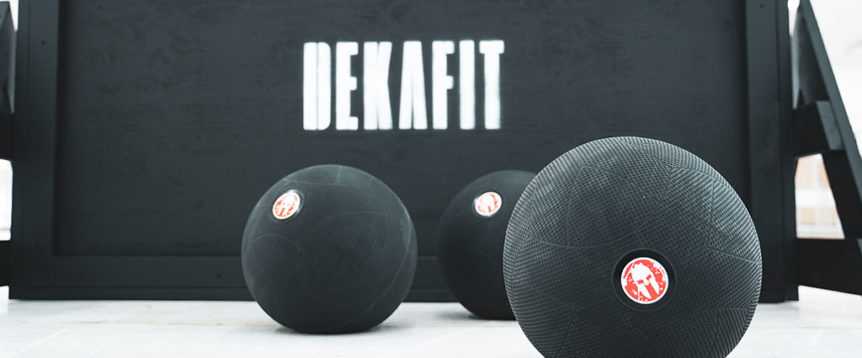Fitness is for everyone. That’s the simple concept underlying DEKAFIT, a traveling fitness event fashioned after an ancient Greek decathlon and designed to let you measure your fitness level against anyone else in the world.
“If you can walk and breathe, you can do DEKAFIT,” says Yancy Culp, one of the masterminds behind the event. “My mom can get a DEKA number. My cousin who’s 80 pounds overweight can get a DEKA number. The most elite athletes in the world can get a DEKA number.”
When you first consider the source of this concept—the creators of the not-for-the-faint-of-heart Spartan obstacle races, held all over the world on challenging terrain—you might feel a bit skeptical. But Spartan race creator Joe De Sena puts it this way:
“This is an olive branch. You, me, the average person…we’re not going to stay fit and healthy if we don’t have a date on the calendar. But you might not want to put a date on the calendar that involves barbed wire and mud and mountains. So if I can give you something accessible, close to your house, I might be able to convince you to get out there.”
The event is held indoors and standardized in each location to allow participants to compete on equal footing. “We’re taking away the cold, the heat, the rain, the snow, the ice—we’ve kicked away all the excuses,” Culp explains.
Writer Kellee Katagi and her daughter Shaelyn Katagi
The event features 10 zones; in each one, participants complete a functional exercise with a set number of reps or distance and a standardized amount of weight (different for men and women). For example, one station calls for 30 weighted squats with 30 pounds for women and 50 pounds for men, while another requires everyone to row 500 meters on a rowing machine. Between each zone, participants run (or walk or crawl, depending on your fitness level) 500 meters, for a total running distance of 5 kilometers.
“We were very careful to pick rudimentary movement standards—there are no high-skill movements, but every plane of motion, every joint is tested,” Culp says. “And we were very selective with our weight standards and rep counts. We wanted just enough that the elites would be tested, but if you pull in 100 random people off the street, I know that 95-plus percent of them can finish this. And that was extremely important to me, because I want anyone to be able to finish and get their DEKA mark.”
Your DEKA mark will then be entered into a global database that can also be parsed into gender, age groups, geographic locations and the like, allowing you to compare your mark among various demographics.
Culp likes to call the mark your temporary tattoo. “When you finish and say, ‘Oh, it took me 57 minutes and 18 seconds’—that’s your tattoo,” Culp says. “But it’s not permanent, because if you get your butt in the gym and stay consistent, the next year you’re going to wash that tattoo off and put a 49-minute tattoo on it.
“I don’t care what you’re doing in any gym in the world,” Culp says, “if you’re improving your fitness, this mark will improve when we come to your city the next year.”
The first DEKAFIT will take place in Denver on March 21 at the Denver Broncos’ Pat Bowlen Fieldhouse, followed by events May 2 in Dallas and May 30 in Atlanta. To register or find out more, visit deka.fit.


